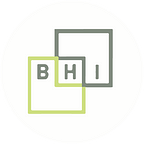At BHI, Language Is a Powerful Tool
Oxygene ni ubuzima.
Oxygen is life.
Last month, Build Health International (BHI) visited Bujumbura, Burundi to provide training on the operation, maintenance, and management of medical oxygen pressure swing adsorption (PSA) plants. This trip is just one of many the BHI Medical Oxygen team has made over the last two years with a focus on scaling up local capacity to effectively maintain and operate oxygen generation plants. In Burundi, BHI successfully trained over 100 biomedical engineers, technicians, and hospital management staff in partnership with LifeNet Health, Agora des Techniciens Supérieurs Anesthésistes Réanimateurs pour la Promotion de la Santé (ATSARPS), the DAK Foundation, and the Skoll Foundation.
To date, BHI has provided 24 medical oxygen trainings in 14 countries, reaching more than 700 trainees across partner stakeholders. However, what makes this trip distinct is that it was the team’s first time hosting training primarily in Kirundi — the national language of Burundi.
Working across so many different regions and contexts, BHI places value and importance in diversity of language. Language facilitates effective communication between oxygen trainers and trainees, and increases comprehension of technical material for long-term sustainability. Above all, language promotes inclusion in the communities where BHI is working. It is a powerful tool in fostering a sense of belonging, accountability, and community both onsite and in the classroom.
“[Trainees] were comfortable, they were laughing. To make jokes and to share their experience in French is not easy for them,” explains Gad Lee Muhirwa, Biomedical Engineer and Trainer at BHI, “but when they were sharing their experience or questions in Kirundi, the stories were full of details helping other trainees learn.”
“These languages, they’re not just means of communication. They’re also expressions of cultural beliefs and local practices,” shares Theogene Ngirinshuti, Global Health Program Manager at BHI. “When we get into people’s communities, and we’re not able to speak their language, we miss out on who they are, what they need, and what they want.”
It is because of BHI’s diverse, international staff that trainings and resources can be offered across other languages. In the case of Burundi, it was BHI’s Rwandan team members who made training in Kirundi possible. Team members noted that Rwanda’s local language of Kinyarwanda is extremely similar to Burundi’s Kirundi, likening the two languages to siblings.
Today, BHI staff can effectively work in English, Haitian Creole, French, Kinyarwanda, Chichew, and Kirundi languages, and there are plans to expand medical oxygen training to Spanish and Kiswahili.
“[Language] is something that we should invest in. If people don’t speak the language that we know, it should never be a barrier to reach them,” states Theogene Ngirinshuti.
BHI’s work is centered in providing accessible and dignified services. In the context of medical oxygen, this is illustrated through the prioritization of offering in-country training, follow up communities of practice for long-term sustainability and resource sharing, incentives for participation for trainees, per diem payments, and even fully virtual training programs in cases of high-security risk. Diversity of language is another pillar of accessibility and dignity.
“When we’re talking about infrastructure, when we’re talking about building spaces, when we’re talking about the services that we are giving, the aim is to offer dignified services to the people we want to serve,” reflects Theogene Ngirinshuti, “I believe going to people and speaking in a language that is easy for them to understand is a dignified way of transmitting skills and knowledge.”
Pamela Moore serves as Oxygen and Biomedical Training Program Manager at Build Heatlh International. She is passionate about using multilateral solutions to improve healthcare accessibility and affordability, and as such closely aligns with BHI’s mission.
